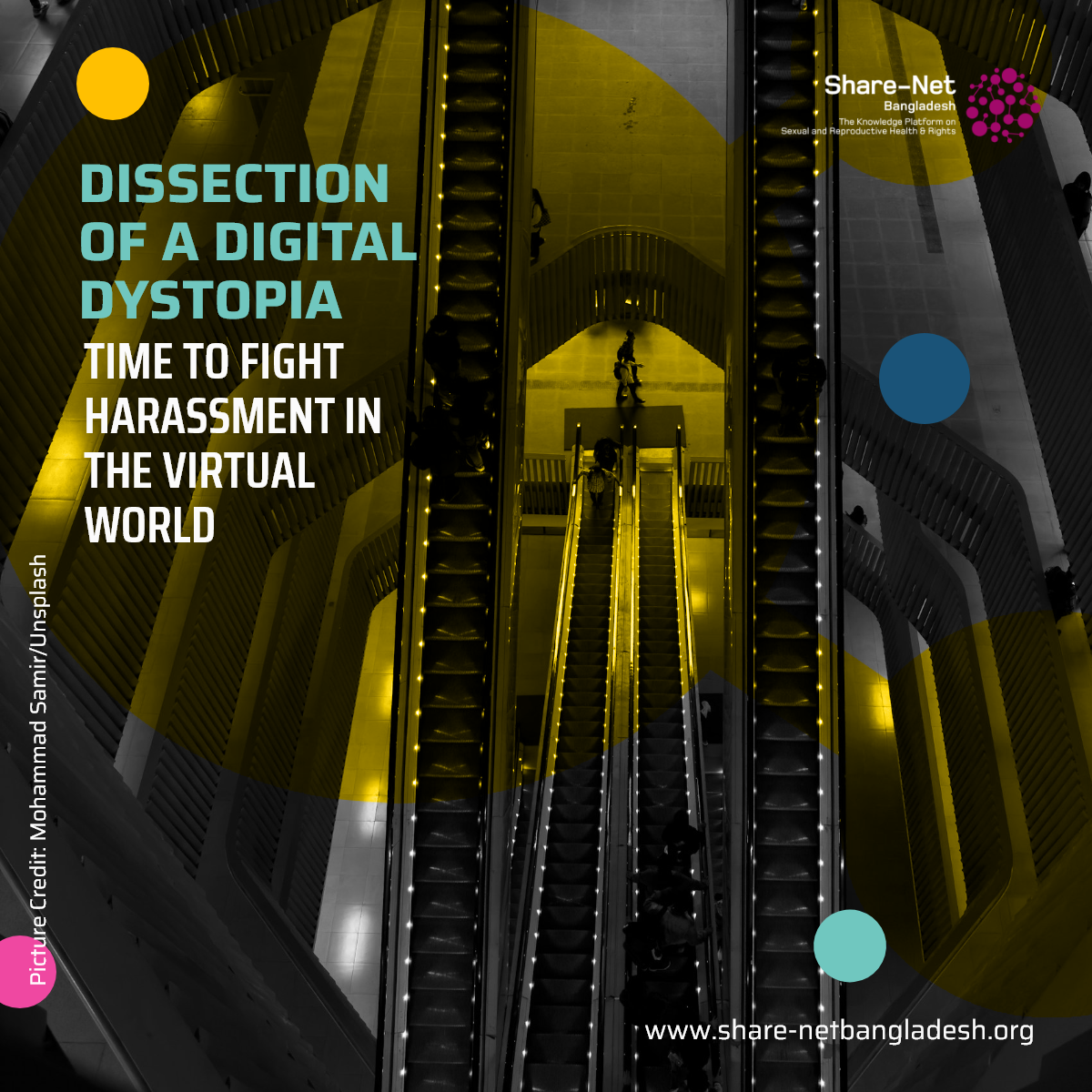Dissection of a Digital Dystopia: Time to Fight Harassment in the Virtual World
In a busy college dorm in Dhaka, Nabila’s phone buzzed incessantly. What started as friendly comments on her photos escalated into threats, lewd messages, and even fake profiles misusing her images. Overnight, her life became a nightmare. Afraid of judgment, she hesitated to report the abuse, fearing that the system would only worsen her trauma.
Nabila’s story is not unique. Across Bangladesh, digital violence against women is growing alarmingly. Studies reveal that 70% of women have faced cyberbullying compared to 30% of men since 2016. A concerning 32% prevalence of cyber harassment among youth aged 14-17 highlights the vulnerability of the younger generation, with victims often developing severe psychological issues like depression.
Online violence disproportionately affects women advocating for social justice, as seen in the case of Farzana Sithi. She became a victim of coordinated cyberattacks, including deepfake videos, after speaking out against political injustices. “I discovered 117 fake accounts using my name,” she shared, underscoring how digital platforms amplify harassment.
The legal system, however, offers little solace. Between 2020 and April 2023, the Police Cyber Support for Women received over 26,500 complaints, yet nearly 9,000 victims chose not to pursue legal action due to fear of victim-blaming and ineffective processes.
These gaps in justice highlight the urgent need for systemic reform. Experts recommend reclassifying cyberbullying as a cognisable offence, creating fast-track courts for digital harassment, and developing a unified reporting platform to protect victims and ensure accountability.
Additionally, integrating digital safety education into school curricula can help foster a culture of responsible online behavior. Social media companies must also step up, enforcing stricter penalties for harassment and providing transparency in addressing user complaints.
The issue transcends technology—it reflects deeply rooted gender inequalities. Addressing online harassment is integral to achieving gender equity and safeguarding sexual and reproductive rights. Without secure digital spaces, women cannot freely express themselves or advocate for SRHR, perpetuating cycles of silence and stigma.
Bangladesh’s vision of a Digital Paradise must extend to all its citizens, ensuring that technology uplifts rather than oppresses. It’s time to turn promises of progress into tangible protections.
Source: The Daily Star
Picture Credit: Mohammad Samir/Unsplash


